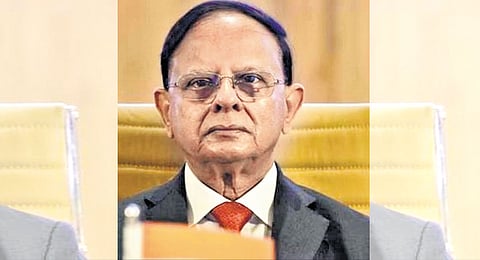

NEW DELHI: P K Mishra, Principal Secretary to the Prime Minister, on Sunday said policymaking must account for uncertainty, focusing on a comprehensive framework and an outcome-driven, constructive mindset.
“In a world characterised by growing uncertainty, it is imperative that our policies and practices operate within a comprehensive framework,” he said. He also highlighted the need for a multi-dimensional and dynamic approach, aiming not only for resilience but for the creation of an anti-fragile system.
Addressing a wide range of issues at the Standard Manthan summit, Mishra said that the government had successfully navigated crises such as the Covid-19 pandemic, the Ukraine-Russia conflict, and the West Asia crisis, with a focus on ‘Atmanirbhar’ (self-reliance).
He credited this success to the visionary leadership of Prime Minister Narendra Modi, who prioritized readiness in addressing challenges by implementing reforms to tackle emergent issues.
On the Indian economy front, Mishra pointed out the several challenges faced, including geopolitical tensions, global supply chain disruptions, and the energy transition.
He praised the government’s initiatives, such as the Production Linked Incentive (PLI) schemes, and highlighted India’s consumption base and demographic advantage.
Mishra described PM’s recent visit to the US “positive” for enhancing trade relations. He further noted that the evolution of bilateral, regional, and multilateral relationships in the changing global trade environment is reshaping the economic landscape.
Mishra expressed optimism that India’s vast consumption base, demographic advantages, robust digital public infrastructure, and technological capabilities would allow the country to withstand external pressures and negotiate from a position of strength.
Talking about India’s agriculture sector, he highlighted that the sector continues to employ approximately 46% of the country’s workforce, despite its share in the Gross Domestic Product (GDP) declining from nearly 50% in the 1970s to 18% today. He also addressed reforms in India’s civil services, outlining several initiatives aimed at making governance more accessible, efficient, and citizen-friendly.